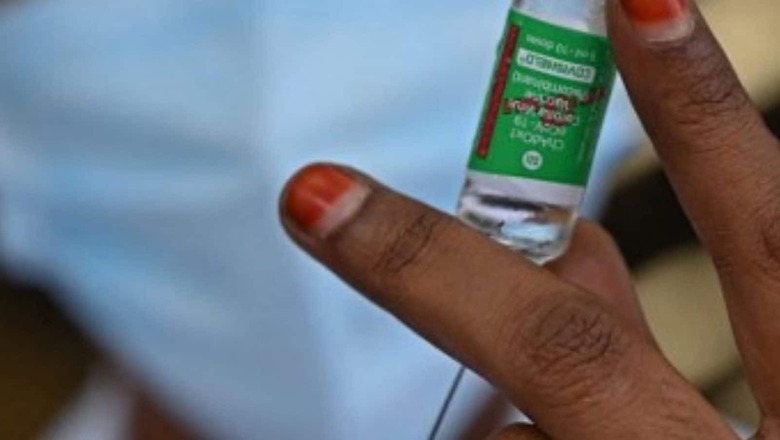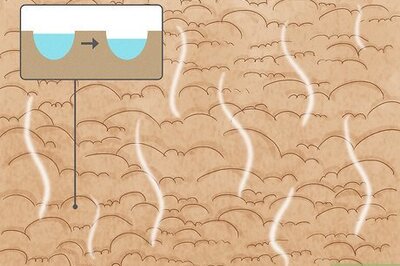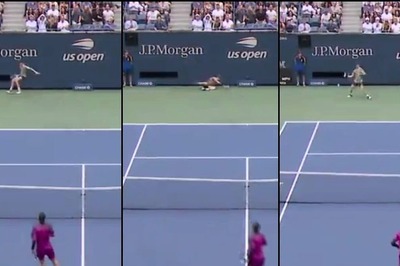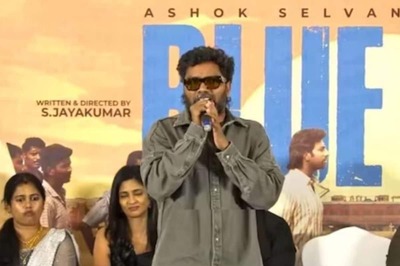
views
India may soon allow a smaller gap between AstraZeneca COVID-19 vaccine doses for inoculations being carried out privately, it was reported on Wednesday. The report said private hospitals and clinics will give their paying patients the option to receive their second dose of the vaccine four weeks after the first, down from between 12 and 16 weeks currently. The is not the first time that India would be revising its vaccination policy.
12 to 16 Week Gap
The Centre first increased the gap between Covid vaccine doses in May without the approval of the scientific group that it said recommended the move, citing three members of the National Technical Advisory Group on Immunisation (NTAGI) advisory body. The Ministry of Health announced the decision to change the gap from 6-8 weeks to 12-16 weeks on May 13. The decision was made at a time when supplies of the vaccine were falling short of demand and infections were surging across the country.
Also Read: EXPLAINED: Why There Are Calls To Cut Covid-19 Vaccine Gap As New Variants Arise
The National Technical Advisory Group committee advised that “as per the COVID-19 working group recommendation, a dosing interval of a minimum three months between two doses of Covishield vaccine was recommended”.
In multiple statements issued in June, the government defended its decision, saying the interval was increased based on scientific evidence after thorough discussions among members of NTAGI as well as its working group on COVID-19 in two meetings held in May.
Around the same time, the UK cut the gap for jabs for certain populations from 12 to 8 weeks after finding that the newer variants of the novel coronavirus could blunt the effect of vaccines.
Reports of Another Revision
In August, India again considered reducing the dosage interval, saying the plan will be discussed in the National Technical Advisory Group on Immunisation in India. Chairman of India’s COVID-19 Working Group of NTAGI, Dr N K Arora, however, said no such proposal for changing the dose interval for any COVID-19 vaccine was under consideration. “There are several studies and programmatic data collection processes are on to assess the vaccine effectiveness. NTAGI is reviewing the vaccine effectiveness data on a regular basis. Currently, there is no proposal for change in the dose interval for Covishield, Covaxin and Sputnik V is under consideration,” Arora had said.
Also Read: EXCLUSIVE| ‘India Likely to Follow UK Vaccination Model for Adolescents’: ICMR Chief
Why is There Gap Between Doses?
There has been considerable variation witnessed in how the two doses of this vaccine have been spaced by different countries. After earlier going for a 12-week gap between two doses, UK last month said that people who receive a first dose of the Oxford-AstraZeneca vaccine can come back for their second dose within 8, and not 12, weeks. Around the same time, India upped its gap to 12 weeks.
What Did Indian Researchers Find?
A study by researchers at the National Centre for Disease Control (NCDC) and the CSIR Institute of Genomics and Integrative Biology (IGIB) in New Delhi has found that the second wave surge in cases in the national capital was mainly caused by the Delta variant.
The study reportedly found that the Delta variant is 50% more transmissible than the Alpha variant, or B.1.1.7, or the UK variant that had caused an earlier surge in that country. It added that prior infection and partial vaccination were “insufficient impediments” for checking the spread of the Delta variant. Further, the researchers said that the Delta variant was “over-represented”, that is, more common, in post-vaccination breakthrough cases.
A report by the Kolkata-based The Telegraph quoted experts who said that India should reduce the gap between doses in light of evidence on how the new variant behaves.
’84-day Gap to Increase Vaccine Efficacy’
In August itself, Centre told the Kerala High Court that the 84-day gap between two doses of Covishield was fixed to increase the efficacy of the vaccine, as recommended by the National Expert Group on Vaccine Administration for COVID-19 (NEGVAC) and was also based on the technical inputs provided by the National Immunization Technical Advisory Group (NITAG).
The Centre had said that “based on the recommendation of NEGVAC, the schedule of Covishield vaccination, under the national COVID-19 program, was to administer the second dose after 12 to 16 weeks. i.e. after 84 days from the first dose”.
“This provides the best protection against COVID-19,” the Centre had claimed and added that the decision was taken based on efficacy and not availability of the vaccine.
UK Inoculation Model for 12 to 18-year-olds
Last week, speaking to Network18 in an exclusive interview, Dr Balram Bhargava, director general of the Indian Council of Medical Research (ICMR), indicated that vaccinations in the age group of 12-18 years are likely to be carried out on the UK inoculation model for adolescents. Zydus Cadila’s vaccine Zycov-D got emergency-use authorisation from the Drugs Controller General of India (DCGI) on August 20 and the framework of inoculation in adolescents will be finalised soon, he said.
Earlier this month, the Kerala High Court had ordered changes in the health ministry’s vaccine-booking platform to give people paying for vaccination this choice, which is already being offered to those flying abroad. “Since the high court has given a judgement, it will have to be done,” said one of the sources. “For the government’s programme, the ideal gap remains 12 weeks.”
Read all the Latest News , Breaking News and Ukraine-Russia War Live Updates here.


















Comments
0 comment